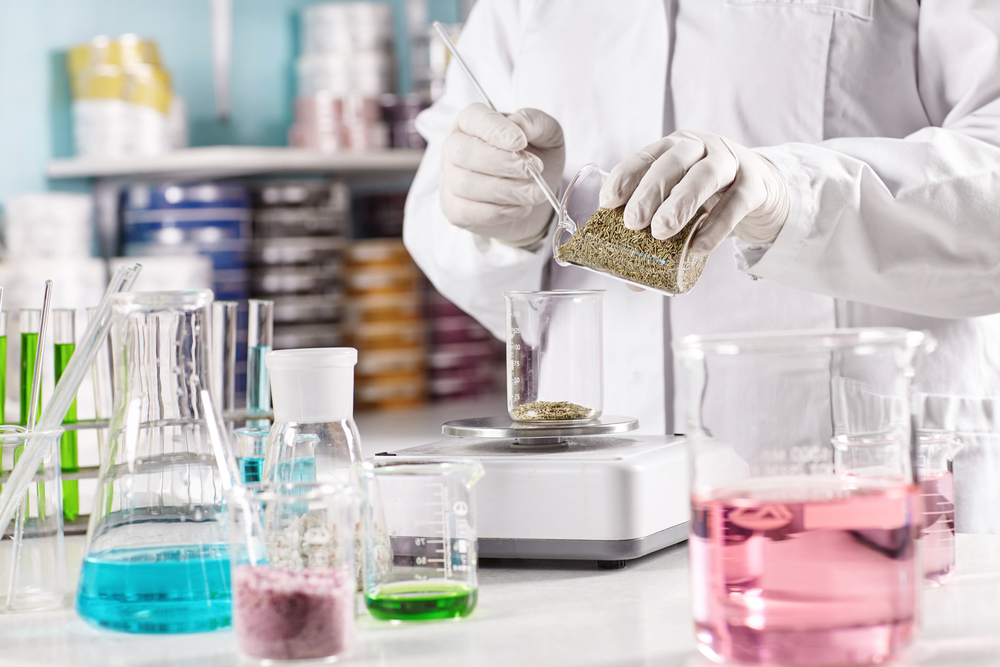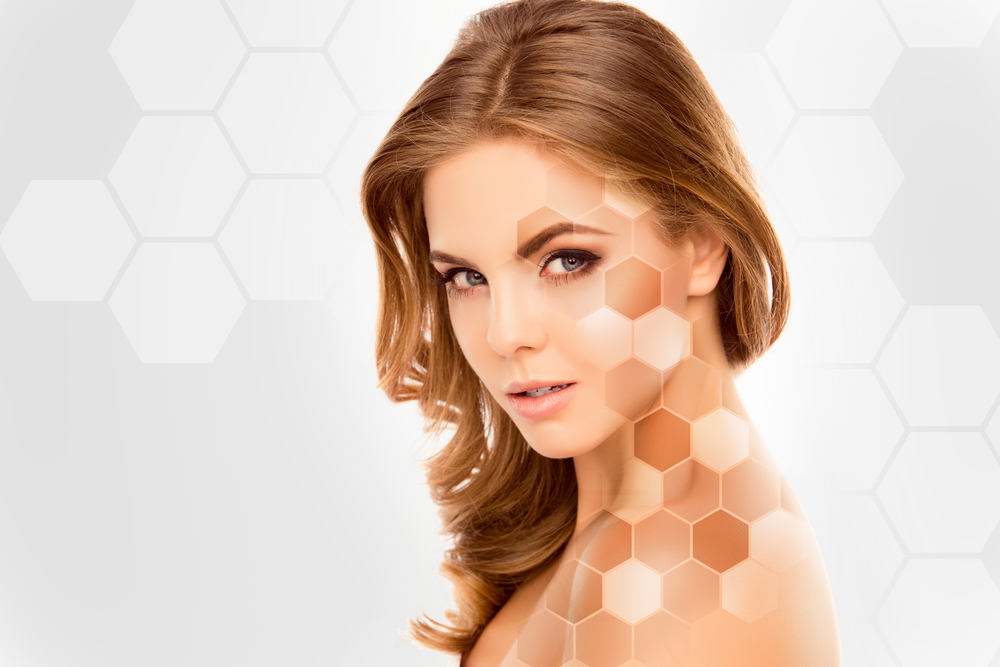The anti-aging industry is booming, and the demand for antioxidant-rich foods and beauty products is one of the major factors that are contributing to this growth.
An increasing number of food and skincare companies are selling the promise of prolonged youth. In fact, recent reports indicate that the global anti-aging market was valued at USD 140.3 billion in 2015, and is expected to reach a whopping USD 216.52 billion in 2021.
One of the most prominent health claims made by these companies is in the benefits of the antioxidants their products contain. We’re here to explore if there is any truth to these claims, or if it’s all fairy dust and lofty promises.
So what are antioxidants, exactly?
Before getting into the potential benefits of antioxidants, it’s important that you understand what an antioxidant actually is.
“All living things utilize oxygen to harvest the energy their cells need for survival,” New York dermatologist Dr. Fayne Frey explains. “Oxygen controls the chemical reactions that break down fats, proteins, and carbohydrates in order to produce that energy. And in doing so, oxygen produces an unstable form of molecule known as a free radical.”
That’s not necessarily a bad thing — free radical formation is actually an important part of several of our body’s normal functions. For instance, studies have shown that free radicals act as signal substances that cause the heart to beat with the correct force.
However, the accumulation of too many free radicals in the body may cause harm to healthy cells. That’s because free radicals are unstable molecules that are missing an electron. This makes them highly reactive and capable of causing a chain reaction of events leading to damage of the functional cells throughout the body.
Essentially, the accumulation of too many free radicals causes oxidative stress, whereby there is an imbalance between the production of free radicals and the ability of the body to counteract or detoxify their harmful effects.
Throughout scientific literature, researchers suggest that oxidative stress is a key factor in more rapid aging, along with the development of diseases such as heart disease, diabetes, Alzheimer’s, and many other chronic diseases.
The unfortunate factor is that modern life does subject us to a higher risk of free radical accumulation. Beyond the natural cellular generation of free radicals, many environmental and lifestyle factors expose us to this threat. Among the culprits: environmental toxins from pollutants and chemicals, processed or low quality foods, high stress levels, alcohol, tobacco smoke, and the intake of drugs.
That’s where antioxidants come into play.
What are the health benefits of antioxidants?
Antioxidants have the ability to donate an electron to the unstable free radical molecules in our body, making them stable again and neutralizing their damaging effects.
Let’s take a short walk through some scientific research on the topic.
Vitamin C
Vitamin C (ascorbic acid) is perhaps one of the better-known antioxidants, particularly for its ability to support the immune system. Given this fact, it’s not surprising that vitamin C has been the subject of extensive scientific investigations.
Studies have shown that adequate levels may assist with cancer prevention, reducing the risk of cancers such as breast, stomach, and non-Hodgkin’s lymphoma. And recent cellular studies show promise that vitamin C may be a natural therapeutic agent to target and kill cancer stem cells, which are responsible for fueling cancer growth.
Vitamin C also helps promote healthy arteries by supporting endothelial function (the lining of arteries), reducing vascular resistance, and assisting with vasodilation (the relaxation of arteries and blood vessels).
Lipoic acid
Lipoic acid is a unique antioxidant that has the capacity to be both water and fat soluble. As such, it helps enhance the antioxidant capacity of three other nutrients – vitamin C, vitamin E, and glutathione.
Studies have shown that lipoic acid can boost the metabolism, assisting with weight loss. And due to its potent antioxidant capacity, lipoic acid is also being used at high doses intravenously as an effective treatment for diabetic neuropathy.
Caratenoids
Lutein and zeaxanthin are two carotenoids found in the retina, where they help absorb macular-damaging blue light. People who consume sufficient levels of these nutrients have a much greater chance of avoiding advanced age-related macular degeneration in the eyes.
Various dietary antioxidants
Dietary antioxidants such as vitamin C (ascorbic acid), vitamin E (a-tocopherol), vitamin A, beta-carotene, metallothionein, polyamines, melatonin, nicotinamide adenine dinucleotide phosphate, adenosine, coenzyme Q-10, urate and ubiquinol have collectively been shown to prevent tooth decay and periodontal disease.
This is just the tip of the iceberg, but as you can see, antioxidant nutrients are essential for good health. However, while the benefits of antioxidants for overall health and disease prevention clearly exist, when it comes to skincare products the use of antioxidants isn’t all it’s stacked up to be.
How do antioxidants benefit the skin?
“Many ‘age-defying’ skincare products on the market contain antioxidants,” says Dr. Frey. “These products claim to stimulate the skin’s natural collagen production and diminish the signs of aging. Because of the popular theory behind antioxidants, it’s no wonder ‘antioxidant-rich’ skincare products containing compounds with green tea, resveratrol, coenzyme Q, and vitamin C are flying off the shelves. Unfortunately, there is little scientific evidence proving their effectiveness in this regard.”
“An important thing to recognize is that antioxidants themselves are very unstable compounds. When exposed to oxygen or light they breakdown, which is why skincare manufacturers frequently use opaque bottles and jars,” adds Dr. Frey. “Also, the skin is designed as a barrier to keep things out, so it does not readily absorb charged molecules, like most antioxidants.”
“Antioxidants applied to the skin surface, if they have not been denatured by the light or oxygen exposure, must penetrate through many layers of skin, into the lower epidermis, and even lower into the dermis where the oxidative free radical damage is allegedly occurring. Therefore, penetration of these antioxidants must be robust enough, and at a high enough concentration, to have any effect. But again, I emphasize that unfortunately, there is little, if any, scientific evidence proving this occurs,” says Dr. Frey. “So although antioxidants may not be harmful, and may even stabilize the skincare product itself, the truth is that the benefits of antioxidants in skincare products remains controversial.”
It’s no wonder ‘antioxidant-rich’ skincare products (…) are flying off the shelves. But unfortunately, there is little scientific evidence proving their effectiveness in this regard.
Dr. Fayne Frey
What about antioxidant supplements?
There is yet another controversial area of antioxidants you should be aware of, and that is their use as dietary supplements.
While some researchers claim the use of synthetic dietary supplements has it’s benefits, others suggest otherwise. Take cancer as one example. Clinical trials have shown that over the long term, many supplements have very little, if any benefits.
These include:
- Beta-carotene
- Selenium
- Vitamin E
- Vitamin A
- Multi vitamins
Likewise, a large review of 50 clinical trials found there was no evidence to support the use of vitamin and antioxidant supplements for prevention of cardiovascular diseases. So to put it frankly, like skincare products, antioxidant supplementation remains a controversial issue.
But that’s not to say antioxidants don’t influence aging or the aging process, or bolster our health in many ways. As suggested earlier, we know that oxidative damage is well recognized in scientific research. And therefore, we know that antioxidants are absolutely essential for good health.
Foods that contain antioxidants
According to researchers, the best way to increase levels of antioxidants in your body is to consume large amounts of fresh vegetables and fruits. A wide variety of plant based foods as different from one another as spinach and coffee can provide a healthy stream of antioxidants.
Vegetables contain highly bioavailable nutrients that your body can readily absorb and utilize. And rather than offering just one nutrient, vegetables offer the synergistic effect of several antioxidants and beneficial compounds that work together for greater effectiveness.
For instance, mushrooms are high in the antioxidants glutathione and ergothioneine, along with riboflavin and other B vitamins, selenium, copper and potassium, dietary fiber and vitamin D (another potent antioxidant).
Tomatoes are rich in lycopene, a carotenoid with powerful antioxidant capacity that is especially beneficial for improving heart health.
Bell peppers offer up a potent source of vitamin C. One pepper contains 253% of your daily requirements.
Spinach and other leafy greens are the most nutrient-dense vegetables available and contain a multitude of antioxidants and phytochemicals.
Red and purple colored fruits and vegetables such as strawberries, blueberries, cherries and eggplant contain anthocyanins, yet another potent antioxidant compound with benefits for cardiovascular health, controlling obesity, reducing risk of cognitive decline and preventing cancer.
The point is, while we are all subject to the marketing hype of so-called anti-aging products, it’s the simple things in life, such as eating more fresh food, that provide the greatest overall health benefits and age-defying advantages!
“The best method for maintaining healthy skin is to focus on healthy eating, exercise regularly, get adequate amounts of sleep, moisturize, and apply sunscreen 365 days a year,” concludes Dr. Frey.









